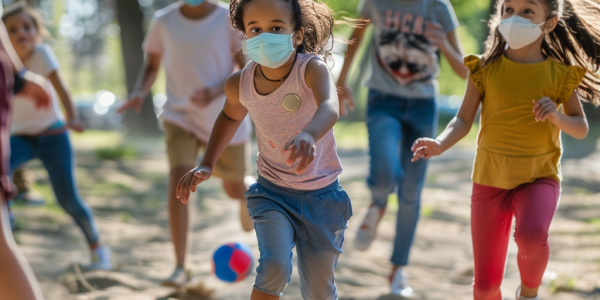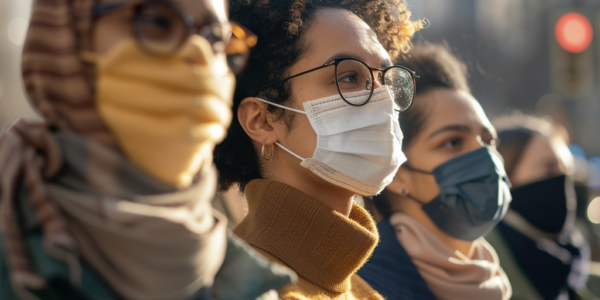Health Risks of Incense Burning for Allergy and Asthma Patients
Recent research presented at the ACAAI Annual Scientific Meeting reveals serious health risks for allergy and asthma sufferers associated with burning incense. The study highlights respiratory dysfunction, headaches, and allergic reactions linked to harmful substances in incense smoke. Health experts recommend alternatives such as electric incense devices to mitigate these risks. Learn more about the health implications of incense burning and safer practices.
Silent Epidemic: Undiagnosed Asthma Among Adolescents in Sub-Saharan Africa
Asthma is a growing silent epidemic among adolescents in sub-Saharan Africa, with millions undiagnosed. A recent study reveals alarming statistics: over 3,000 teens reported asthma symptoms, yet only 600 had formal diagnoses. Urgent action is needed to improve asthma management and access to medications in the region, as rapid urbanization exacerbates health issues.
Promising Results from BATURA Trial for New Asthma Medication Airsupra
Avillion Life Sciences Ltd has announced promising results from the Phase IIIb BATURA trial, showcasing AstraZeneca’s inhaled medication Airsupra. This trial highlights a significant reduction in severe asthma exacerbations for patients with intermittent or mild persistent asthma, marking a potential breakthrough in asthma treatment. The Independent Data Monitoring Committee recommended an early halt due to the overwhelming efficacy observed, emphasizing the urgent need for effective asthma management solutions.
COVID-19 Vaccination Linked to Lower Asthma Symptoms in Children
A recent study led by Nemours Children’s Health suggests that children aged 5 and older who have been vaccinated against COVID-19 may experience lower rates of asthma symptoms. The research team found that social distancing measures in 2020 were linked to decreased rates of emergency visits and hospitalizations for asthma in children. The study also revealed that COVID-19 vaccination played a role in reducing the risk of COVID-19 infection for both adults and children, highlighting the potential benefits of vaccination in reducing asthma symptoms in children.
Promising Results in Asthma Treatment Using Engineered T Cells
Groundbreaking study in Nature Immunology shows promising results in treating asthma with engineered long-lived and multifunctional T cells. Research led by Gang Jin demonstrates durable remission of asthma in mice with a single infusion. This innovative approach offers hope for the future of asthma treatment and the potential of immunotherapy in managing respiratory diseases.
New Study Shows Azithromycin May Put Asthma Into Remission
Researchers at HMRI and the University of Newcastle have found that remission can be achieved in up to 50% of moderate to severe asthma patients treated with long-term azithromycin, a low-cost oral therapy. This groundbreaking study, published in the journal Chest 2024, offers a new approach to asthma treatment with significant health and economic implications.
New Research Shows No Link Between COVID-19 and Increased Risk of Asthma in Children
New research shows there’s no link between COVID-19 and increased risk of asthma in children. A study published in Pediatrics found that children who tested positive for COVID-19 were at no greater risk of being diagnosed with asthma over the next 18 months compared to children who tested negative. The researchers analyzed the health records of over 27,000 children and found no significant association between COVID-19 infection and the development of asthma in children.
Study Finds Multiple Child Asthma Triggers in Polluted Air
New research from Washington State University in Spokane reveals that polluted air contains a toxic mix of chemicals that can trigger asthma attacks in children. The study, led by researcher Solmaz Amiri, found that the location of a child’s residence significantly impacts their exposure to these toxins. Three pollutants were identified as particularly influential in triggering asthma symptoms in children: 1,1,1 trichloroethane, 2-nitropropane, and 2,4,6 trichlorophenol. Despite some of these air toxics being discontinued in the U.S., they may still be present in stored materials or the environment. The study highlights the ongoing presence of these pollutants and their potential impact on children’s health, underscoring the need for continued monitoring and action to reduce children’s exposure to harmful air pollutants.
Study Links Nasal Key Driver Genes to Ozone and Fine Particulate Matter Exposure in Asthma Patients
A recent study presented at the American Academy of Allergy, Asthma & Immunology Annual Meeting revealed that various nasal key driver genes are linked to ozone and fine particulate matter exposure in patients with asthma. The study, conducted by researchers including Supinda Bunyavanich, MD, MPH, MPhil, and Yoojin Chun, MS, analyzed data from 167 patients with mild to severe persistent asthma in the New York metropolitan area. The findings shed light on the genetic factors associated with asthma exacerbations due to environmental exposures, highlighting the importance of addressing air quality issues to improve asthma control and management.
FDA Approves Omalizumab for Reduction of Allergic Reactions in Patients with Food Allergies
FDA approves omalizumab (Xolair; Novartis) as the first and only medicine to reduce allergic reactions in patients with food allergies. The drug is not for emergency treatment and patients should continue avoiding allergenic foods. Positive results from the phase 3 OUtMATCH study show potential for omalizumab to mitigate allergic reactions in patients with multiple food allergies.










